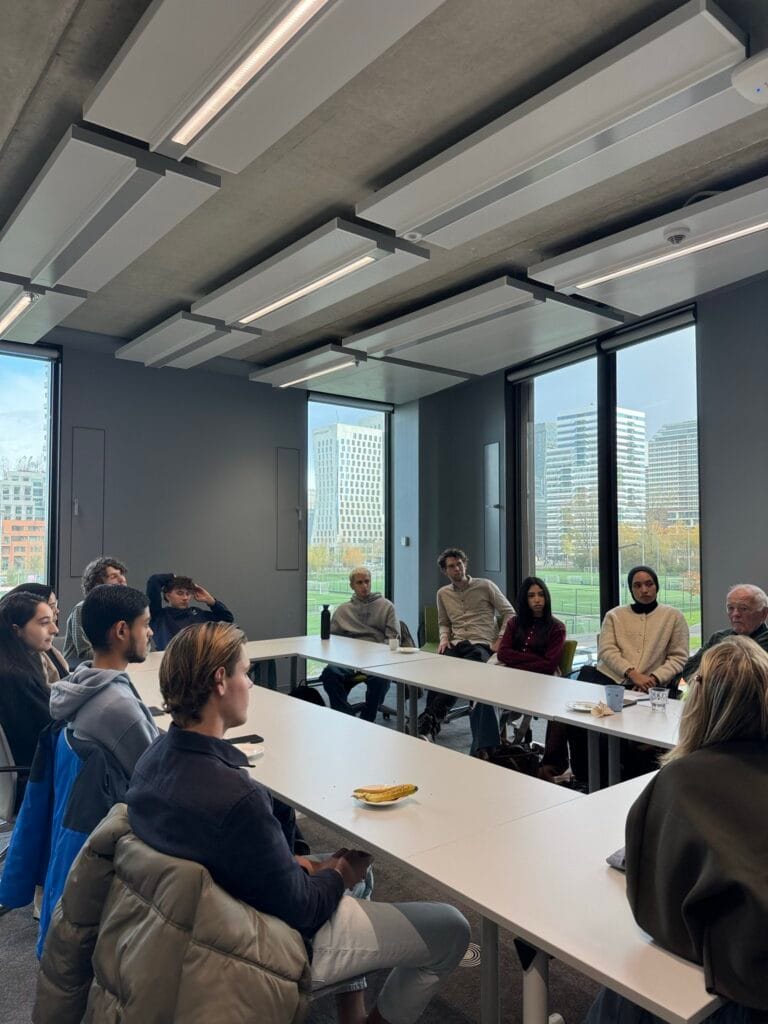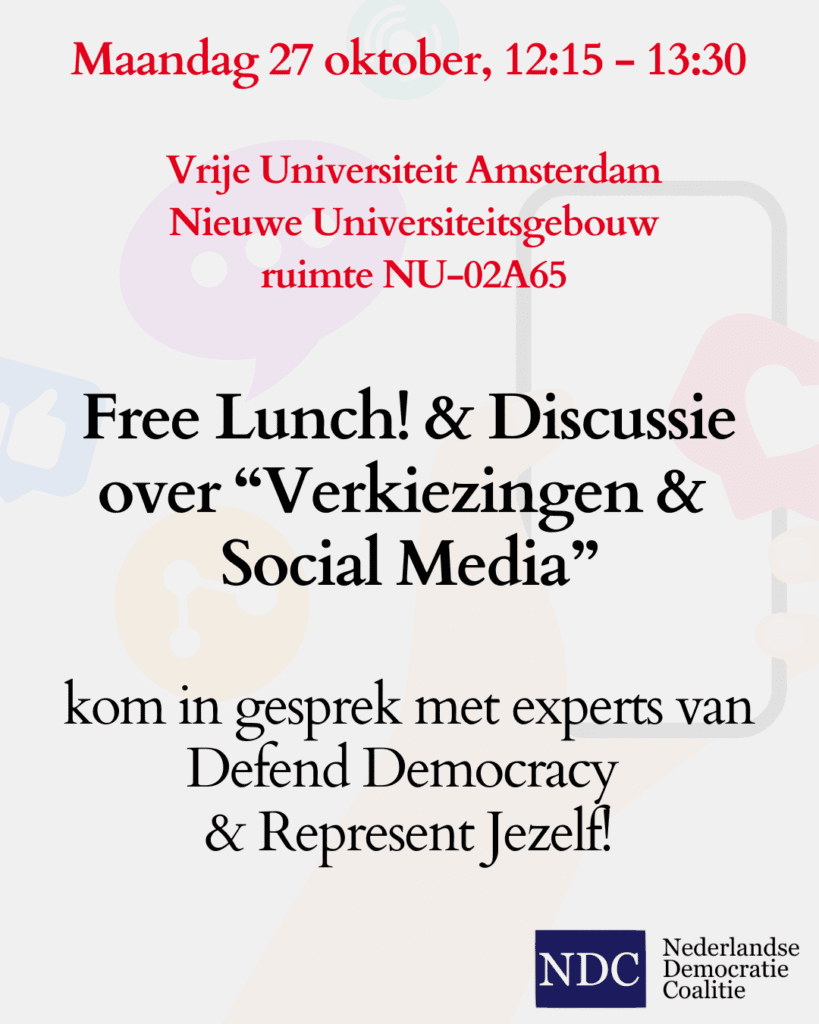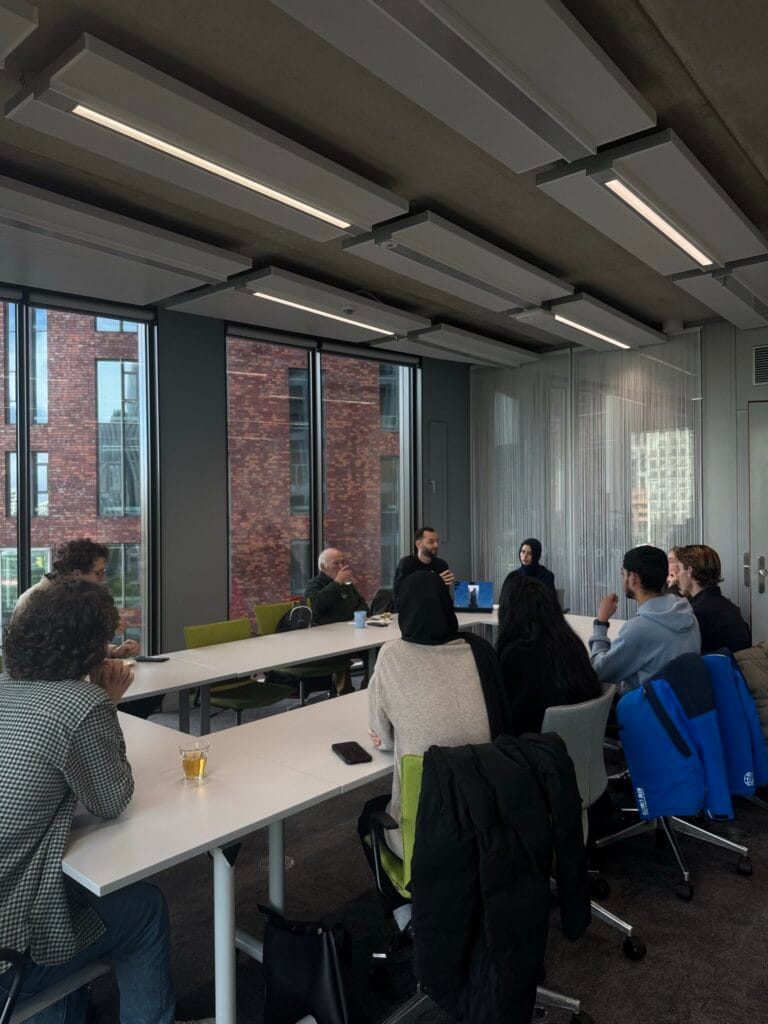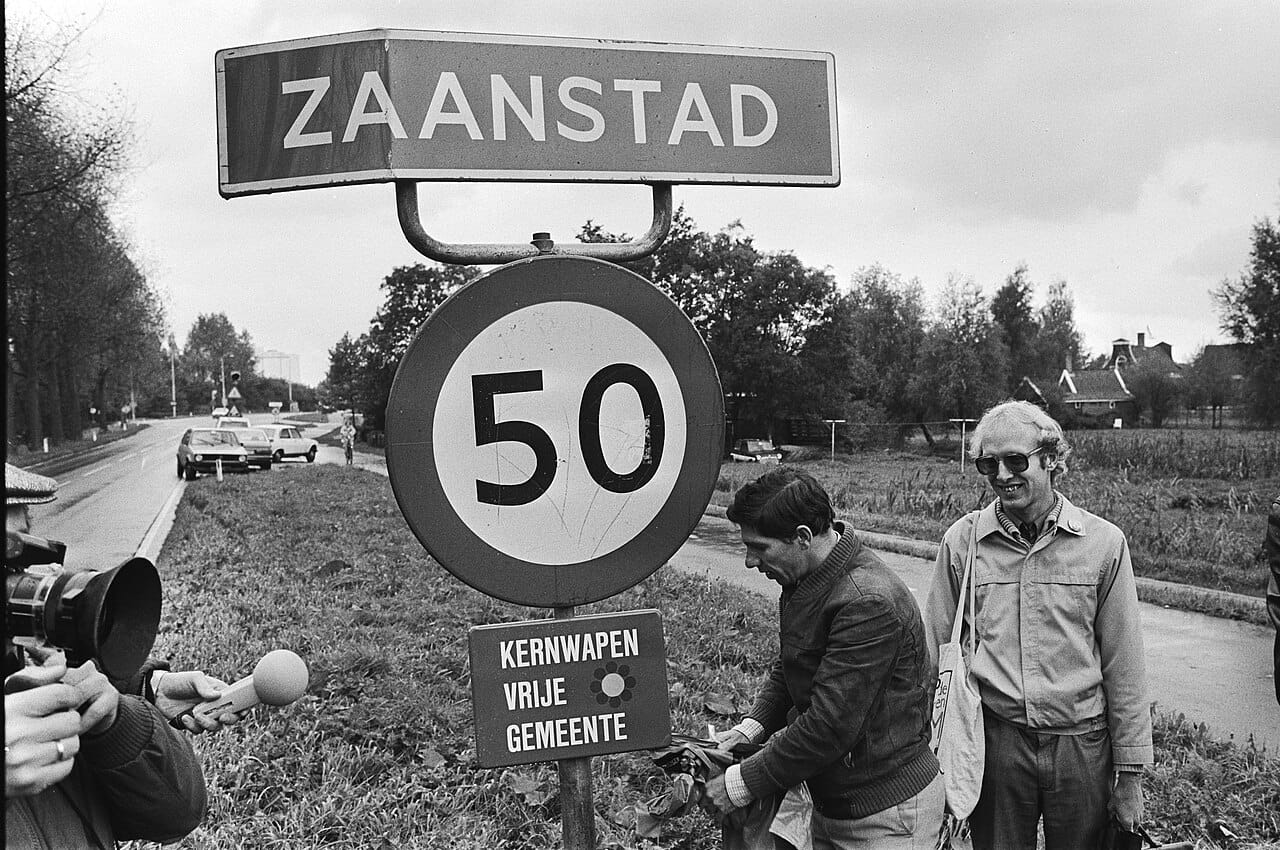This article was posted as part of our work in the Dutch Democracy Coalition. This project was created with support from Democracy & Media Foundation.
Last Monday, 27 October, the Dutch Democracy Coalition (NDC) in conversation with students and interested parties at the Free University of Amsterdam on disinformation, deception and the role of algorithms during election time in the Netherlands. This was done in cooperation with WebWatch and Defend Democracy, investigating narratives, deception and disinformation on major social media platforms in the Netherlands. In addition, the Younes Douari from Represent Yourself to. He spoke about the lack of representation and involvement of young people in Dutch politics and the low turnout in elections.

A key problem mentioned by many young people was the difficulty of recognising bots and coordinated fake accounts. These accounts are becoming increasingly sophisticated and are often barely distinguishable from real users. Defend Democracy hereby gave some useful tips: when in doubt, look at the profile - how old it is and what content is shared. Fake accounts are often about a year old and post many generic messages, such as pictures of beaches, food or holidays.
The danger of AI-generated images that capitalise on emotion. It is important not to share this kind of misleading content lightly, as images often stick better than the subsequent correction. Many attendees also indicated that they rarely report these kinds of posts to social media platforms, as they have little confidence that it will have an effect.
When disinformation is suspected, it is crucial to taking a step back and consulting multiple sources. According to Younes Douari, it is important here to keep sources diverse, so that different perspectives are given space. When multiple independent sources confirm the same information, it increases its reliability.
Our information landscape: "Doing nothing means disappearance"
To stay in touch with diverse and independent journalistic sources, breaking through social media bubbles and algorithmic filters is essential. On that subject, the NDC spoke to Leon Willems, former director of Free Press Unlimited. He stressed that a new cabinet, with the support of civil society, with far-reaching proposals must come to protect the Dutch information landscape. Without support for independent journalism, our access to it is slowly being squeezed. "Doing nothing means disappearance," Willems said.
The interaction between newspapers, broadcasters and social media means that media companies increasingly have to conform to the fuss of the day, emotion and quick frames to remain visible. As a result, certain themes, groups and perspectives become underexposed, whereas it is independent journalism that can redress this balance.
According to Willems, in addition to European legislation on digital services and competition, the Netherlands can, national actions take. Regulation of social media is currently minimal, while it is quite common in other areas of information. Examples of possible measures include a Tax on ad revenue from Big Tech, the proceeds of which benefit independent journalism. In addition, several studies (a.o. WRR) highlighted the importance of a prominence policy, with quality journalism being ranked higher in algorithmic overviews. Finally, Willems points to a stricter copyright policy, so that media companies and journalists are protected from the royalty-free use of their work by AI systems. A strong association of news media and publishers is essential in this regard.
The Dutch information landscape is under pressure due to the influence of social media. This has a negative impact on the availability of quality journalism and various sources of information, especially at election time. This directly affects the quality, cohesion and confidence of citizens in Dutch democracy.
The Dutch Democracy Coalition and its partners will continue to work in the coming months on proposals for the new cabinet to strengthen the information landscape and democratic resilience in the Netherlands.





